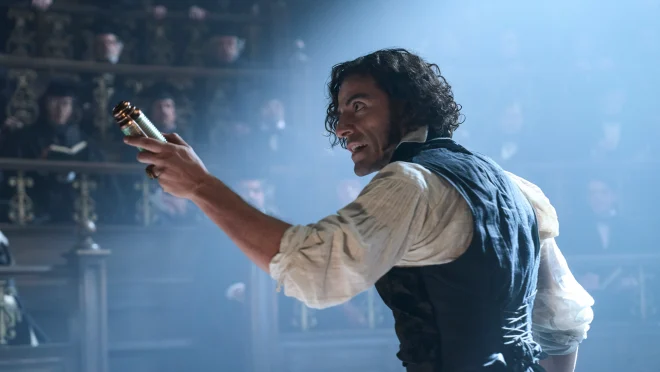Guillermo del Toro's 'Frankenstein': A heartfelt story of compassion, loss and monsters within
Guillermo del Toro's 'Frankenstein': A heartfelt story of compassion, loss and monsters within

Guillermo del Toro’s Frankenstein, adapted from Mary Shelley’s novel Frankenstein, explores the question of whether being a monster is about outlook or if we should look deep inside.
As the movie begins, we see Victor Frankenstein (played by Oscar Isaac), fuelled by his mistreatment by his overachieving father, who wants his son to follow the same steps and live up to his name.
After losing his mother, young Frankenstein fixes on the notion that one day he will become a better scientist than his father. With all ambition and rage, Frankenstein creates a monster (played by Jacob Elordi) that is not natural, a culmination of various dead bodies and a heart powered by thunderbolts.
The creature, a true monster by nature, utters only one word: the name of its creator, Victor. Victor Baron Frankenstein, not having an iota of compassion, realises what a monster he has created, not from within but from outside. It is only through the eyes of Ezabella (played by Mia Goth), Victor’s brother’s fiancée, that we see the human nature of the creature, not different from any other newborn baby.
As the story progresses, we see the narrative from two perspectives, one from Victor himself and the other from his creature. Throughout the runtime of the film, one cannot help but feel compassion for the monster that is the creature, a monster only in appearance but within, a human being seeking love and companionship. How can someone be a monster if they only want the most basic human desire to be fulfilled, which is companionship?
Guillermo del Toro’s Frankenstein is hardly a story about monsters. It explores the question of what defines a monster and provides an answer to that inquiry. The creature, being a monster in all its accord, is more human than his creator, Victor Frankenstein.
The film was produced and distributed by Netflix, a major studio that has been attracting renowned directors who find it difficult to get their projects funded elsewhere.
The only complaint about this can be attributed to the film’s short theatrical release window. Guillermo del Toro, in multiple interviews, said that this rendition of Frankenstein is a Latin American melodrama. He also noted that his Frankenstein is played by a Latino, Oscar Isaac, not a Caucasian actor, as Hollywood would have preferred. Guillermo’s mastercraft, along with Oscar Isaac’s performance and Jacob Elordi’s acting through every part of his body, has made this film one that will be referenced as a classic in the days to come.
With its limited release in theatres, when the film premiered in Venice, it received a 15-minute standing ovation from the audience. But it is still surprising that the film had only a three-week theatrical window. (Perhaps an Oscar eligibility trick?). In Seth Rogen’s series The Studio, we see how big film houses manipulate great filmmakers. It has always been the case. From Netflix’s perspective, it is a success. They have the film on their platform. They have a big name attached to it. They have a horse in the Oscar race.
This film will have a strong run during award season, with multiple sure nominations such as Best Picture, Best Director, Best Actor, Best Supporting Actor, and Best Costume Design. It will be a thrill to watch where it goes.
If you are someone who loves films that make you think and feel, then this film is perfect for you. Just remember, appearances can be deceiving.


